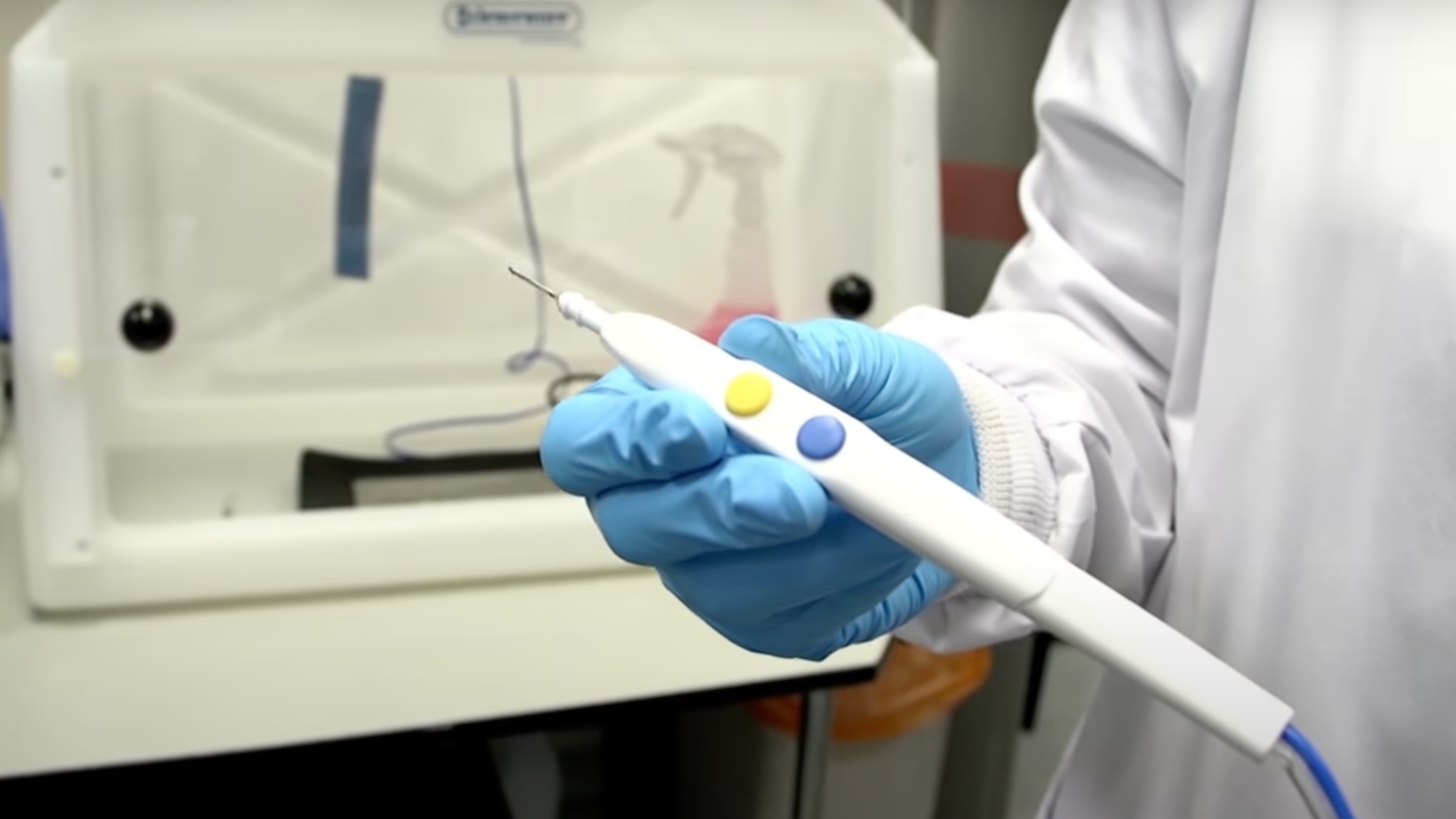

Since 2013, medical professionals have increasingly turned to a device called the iKnife for finding potential breast and brain cancers. The iKnife, an electric toothbrush-sized instrument that works by ingeniously combining electrosurgery alongside mass spectrometry. First developed by researchers at Imperial College London, the iKnife uses tiny electrical pulses to vaporize tissues, while a spectrometer array analyzes the ensuing smoke to detect potentially cancerous cells. The “smart” surgical tool has often shortened biopsy wait times while also allaying some of patients’ stress in the ensuing decade—and recently, Imperial College London’s iKnife team announced its capabilities are expanding.
[Related: More Americans are surviving cancer now than ever.]
As first reported by The Guardian, the iKnife’s technology shows promise in identifying patients’ endometrial cancers with an almost 90 percent accuracy rate. “The iKnife reliably diagnosed endometrial cancer in seconds, with a diagnostic accuracy of 89 percent, minimizing the current delays for [patients] whilst awaiting a histopathological diagnosis,” the team wrote in a paper published in the research journal, Cancers, adding that the innovation could “pave the way for new diagnostic pathways.”

Abnormal or irregular bleeding often occurs for postmenopausal people because of often benign reasons such as noncancerous polyps or a result of hormone replacement therapy. That said, postmenopausal bleeding is considered to be one of endometrial cancers’ major early indicators, and experts suggest patients always schedule medical examinations if bleeding begins. The iKnife’s potential new ability to near-instantly assess problematic tissue could drastically alleviate the stress that comes during these previously lengthy, sometimes weeks’ long wait periods, says Imperial College London’s research team.
[Related: Why doctors almost never say cancer is ‘cured.’]
Research lead, Sadaf Ghaem-Maghami, explained to The Guardian that with a positive predictive value of 94 percent, the iKnife could soon “immediately reassure” someone of an extremely low likelihood of cancer, while also expediting additional testing and treatment for those with potentially positive biopsies.
The researchers’ initial testing compared iKnife’s results with traditional diagnostic methods for 150 people’s biopsy tissue samples. Following a future major clinical trial, the iKnife’s newest capability could become yet another widespread feature for the smart device.